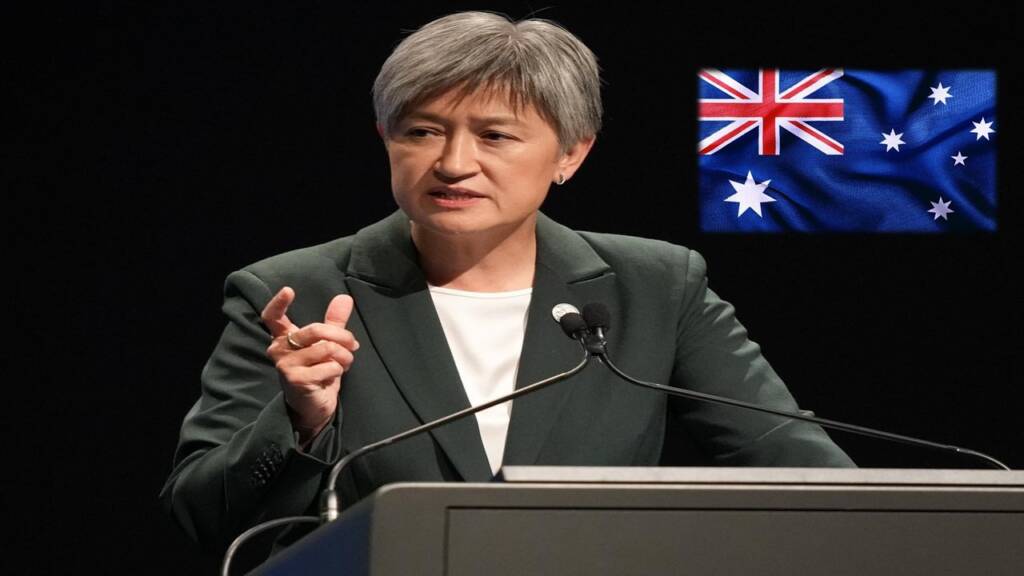Australia’s Foreign Minister, Penny Wong,warned about the shared risks between Australia and Southeast Asia due to escalating tensions over the South China Sea and Taiwan. Speaking at the ASEAN-Australia Special Summit in Melbourne, Wong pointed out the potential “devastating” consequences for the region arising from the increasing rivalry between China and the United States. She underscored Australia’s strong ties with the ASEAN bloc and the collaborative prospects for economic growth through trade and investment. Wong then shifted focus to maritime security concerns, acknowledging the importance of addressing these issues to safeguard regional stability.
The ongoing issue takes center stage in the meeting as Australia, a middle power, seeks to engage members of the 10-nation group amid heightened assertiveness from Beijing under President Xi Jinping. Foreign Minister Penny Wong, without explicitly naming China, suggested that the region’s “character was being challenged.”
Join us on Telegram: https://t.me/tfiglobal
“We all have a responsibility to shape the region we want, the region we want to share — peaceful, stable and prosperous — a region in balance where each country can pursue its own aspirations, where no country dominates and no country is dominated,” Wong said.
“Maintaining this character is a continued and continuous process.”
The South China Sea dispute, where China claims a significant portion as its territory conflicting with ASEAN members, was addressed. China has constructed military outposts on reefs, leading to legal challenges. The Permanent Court of Arbitration in The Hague ruled against Beijing’s claims in 2016, supporting the Philippines’ position under the United Nations Convention on the Law of the Sea (UNCLOS).
Foreign Minister Penny Wong announced Australia’s commitment of 64 million Australian dollars ($41.7 million) over the next four years to “enhance Australia’s Southeast Asia maritime partnerships.” Wong highlighted the significance of ASEAN centrality as a key factor in the region’s stability and security. Additionally, she disclosed a further AU$222.5 million to support “resilience in the Mekong subregion.”
Read More: Australia’s $11B Naval Revolution: Drone Boat Power Unleashed!
Upholding international law and creating space for dialogue was “more important than ever,” as the region saw “destabilizing, provocative and coercive actions,” including “unsafe conduct at sea and in the air, and militarization of disputed features”, Wong said.
“We know that military power is expanding, but measures to constrain the military conflict are not and there are a few concrete mechanisms for averting it,” Wong said.
Subsequent to Wong’s statements, the Philippines’ Secretary of Foreign Affairs, Enrique Manalo, emphasized the pivotal role of diplomacy in determining the future of the strategically significant South China Sea. According to Manalo, the collaboration between Australia and ASEAN holds significance in achieving this objective.
“The shared stewardship of the seas and oceans in the region behooves us to unite in preserving the primacy of international law so we can ensure equitable and sustainable outcomes for all,” he said.
Read More: Naval Clash: Australia’s Gamble with Germany Unveiled
The three-day meeting marks the second special summit convened by Australia, following the inaugural gathering in 2018. The summit’s thematic focus encompasses business, emerging leaders, climate and clean energy, and maritime cooperation. Notably, Australian Prime Minister Anthony Albanese and leaders from all ASEAN member states are expected to attend, with the exception of Myanmar. Myanmar’s exclusion from ASEAN meetings stems from the military’s seizure of power in 2021.
The summit unfolds against the backdrop of civil unrest in Myanmar, prompting hundreds to assemble in protest against military rule. Activist Yu Yu Chit expressed appreciation for the Australian government’s sanctions on the junta. However, she voiced disappointment in the government’s failure to recognize the National Unity Government (NUG). The NUG comprises elected members of parliament and lawmakers ousted by the military, functioning as a government in exile.
“The military is losing ground,” she said. “What is there to lose in legitimizing the NUG?”
